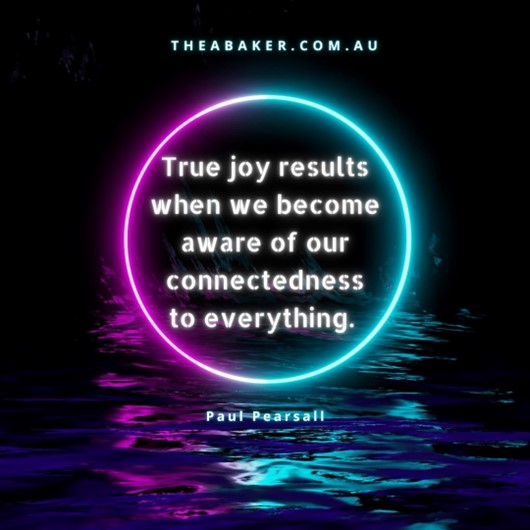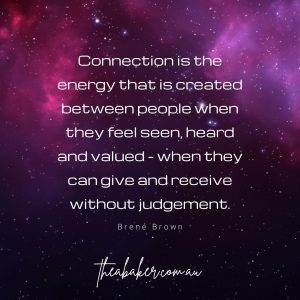Connectedness
Connectedness
Without going full-nerd and explaining in lengthy detail the research I’m doing at the moment at Deakin University into some of the mechanisms that might explain the relationship between physical activity and depression, I was struck by one of the possible mediators – the social context of physical activity – and it gave me a little bit of inspiration for this week’s blog. Another way of looking at it, is that the connectedness that comes from doing physical activity with other people may play a very important part in improving depressive symptoms in people engaging in exercise (as opposed to just the benefit of doing the exercise itself). Which makes me think about how important being connected to others is for us humans.
Being connected to others is now understood to play an important role in protecting our moods, mental health, and even physical health. (1) The connections we make through relationships with others, places, social activities and even to our culture or spirituality serve as a safety net for our whole-person health. Research shows us that health connections with family, friends, partners, and colleagues – even having a pet – can all lower levels of anxiety and depression, and additionally increase self-esteem. We also mustn’t lose sight of the importance of connecting with nature and the outdoors. For many people, living in an urban environment can be noisy, overstimulating, and busy – it can feel like our whole system is being overwhelmed. We know that people who have a garden or spend time outdoors visiting parks or nature reserves regularly, generally sleep better and have lower levels of stress, anxiety, and depression. (2)
The theory of connectedness:
Connectedness encompasses the caring and support relationships of people and it sits within two important theories around mental health and wellbeing:
- Attachment theory
Developed by John Bowlby (1968; 1988) attachment theory suggests that a baby’s first attachment experience has a profound and significant influence on their subsequent cognitive and emotional development. Research has shown that a positive relationship with one parent during infancy and early childhood is a protective factor for a child’s psychological health.
- Resilience theory
This view of connectedness recognises the potential positive influence of strong external relationships and connections. Protective factors of social skills, family ties and congestion are considered part of resilience, as are external support systems (school, teachers, classmates and participation in activities).
Connectedness: “Connection occurs when a person is actively involved with another person, object, group or environment, and that involvement promotes a sense of comfort, well-being and anxiety reduction.” (Hagerty, Lynch-Sauer, Patusky & Bouwsema, 1993, p. 293)
Put another way, connectedness is a sense of being open and available to another person, even as you feel they are open and available to you. Other important components of being well connected include empathy and compassion.
Examples of connection with others (humans):
- Having a personal (deep) conversation about what’s important to you with someone AND feeling heard and seen as you do so
- Taking the time to listen to someone else and feel genuine empathy for them
- Helping someone else out of unconditional goodwill, without expectation of reciprocity
- Offering sincere gratitude to someone else and receiving gratitude from others
- Catching a stranger’s eye – and both of you smiling
- A shared experience with others that involves laughter
How do you know if you’re connecting to others:
- You’re present and ‘in the moment’
- You are being yourself
- You feel open (even if it feels a little uncomfortable to be vulnerable)
- You feel empathy and kindness for the other person
- There’s a sense of trust between you and the other person
Sometimes things can get in the way of being able to connect easily with others. Things that might cause such challenges include:
- Low self-esteem
- Trust issues
- Attachment issues
- Childhood trauma and / or abuse
- Diagnoses of ASD, depression, anxiety, social anxiety disorder, personality disorders
If you’d like to explore your connectedness, please get in touch with us: www.theabaker.com.au / hello@theabaker.com.au / 03 9077 8194.
- Cruwys T, Dingle GA, Haslam C, Haslam SA, Jetten J, Morton TA. Social group memberships protect against future depression, alleviate depression symptoms, and prevent depression relapse. (Social Science Medicine. 2013)
- Holt-Lunstad J, Smith TB, Layton JB. Social relationships, and mortality risk: a meta-analytic review. (Public Library of Medicine. 2010)
- Pearson DG, Craig T. The great outdoors? Exploring the mental health benefits of natural environments (Frontiers in Psychology, 2014)


